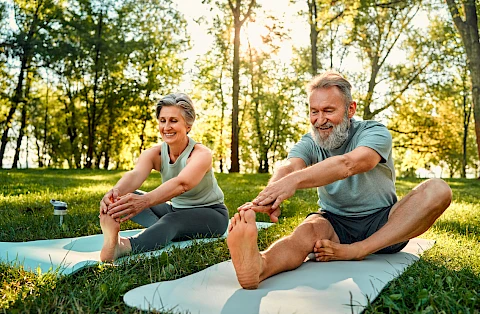
Preventing falls is a major concern when caring for seniors, and taking a proactive approach can make a significant difference. Here’s a comprehensive guide to help caregivers keep their loved ones safe through home modifications, exercise routines, and regular check-ups.
The Risks of Falls for Seniors
Common causes of falls in seniors include poor balance, weak muscles, and vision or hearing issues. Aging affects balance and mobility, making seniors more prone to falls. Caregivers should recognize the risk factors for seniors in their care. These can be health issues like arthritis, medications that cause dizziness, or even poor footwear. Identifying these risks is the first step in preventing falls.
Home Modifications for Safety
Assessing the home environment is vital in fall prevention. Start by looking around the home to spot potential hazards. Simple changes can make a big difference. Here are some tips:
- Remove clutter from walkways.
- Secure area rugs with double-sided tape.
- Ensure good lighting throughout the home.
Installing safety features can also help. Consider adding grab bars in the bathroom, handrails on staircases, and non-slip mats in the shower. These modifications can significantly reduce the risk of falls and provide peace of mind.
Exercise Routines to Improve Strength and Balance
Regular physical activity improves strength and balance, which are key to preventing falls. Recommended exercises for seniors include Tai Chi, which helps improve balance and flexibility; walking, a safe and easy exercise to maintain mobility; and strength training, which builds muscle strength with simple exercises like leg lifts and wall push-ups. Creating a safe exercise plan is important. Make sure the exercises are suitable for the senior's fitness level and are approved by a healthcare professional.
The Role of Regular Check-Ups
Vision and hearing checks can detect issues that affect balance and coordination. Similarly, reviewing medications with a doctor can highlight side effects like dizziness that may contribute to falls. These check-ups help ensure that seniors are in the best possible health to avoid falls.
Discussing Fall Prevention
When discussing fall prevention, approach the topic with sensitivity to avoid causing embarrassment or frustration. Frame the conversation around safety and independence rather than focusing on limitations. Ask questions like, "How can we make sure you're comfortable moving around at home?" Involving them in decision-making can empower seniors to take proactive steps, making them feel more in control of their situation.
Be respectful and avoid sounding patronizing. Instead, make it clear that you value their input and want to work together on a plan. Encourage participation by involving them in creating safety plans and choosing modifications and exercises. This can help them feel more in control and invested in preventing falls.
Be Proactive in Keeping Seniors Safe
Helping seniors prevent falls is an ongoing effort that involves creating a safer home, encouraging regular exercise, and staying on top of medical care. Caregivers play a key role in this process by fostering open communication and working together with seniors to implement strategies that enhance their well-being. By focusing on these proactive steps, caregivers can empower seniors to maintain their independence and stay safe at home.
For professional senior care services in Manhattan, Bronx, Brooklyn, and Queens, contact us at Senior Helpers New York City. We're here to help keep seniors safe and supported every step of the way.